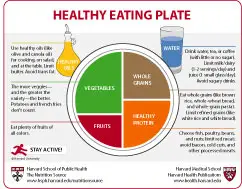
Although physical educators have long realized the importance of Quality Daily Physical Education, the need for such programs is still not a priority for parents and policy makers. This is highlighted by the fact that many school boards still use block-scheduling for physical education classes. That is, they schedule a child’s PE classes in either the first or second semester instead of providing them throughout the school year.
Unfortunately, the administrators who make educational policy are often academics with no grounding in physical fitness—their decisions are based on efficiency rather than sound physiological principles.
This problem were amusingly illustrated as far back as 1990, in a book by Gordon Stewart called “Running Through My Mind.” In this book, he described the thoughts of Dr. Bill Ross of the Department of Kinesiology at Simon Fraser University in Burnaby British Columbia.
Here’s an excerpt from Mr. Stewart’s article, “Games Children Should Play.”
“In spite of the overwhelming evidence of its value, daily physical education is still more a dream than reality. Some schools move even farther from the ideal with a system known as block scheduling, where a subject is taught every day one semester and not at all the next.”
Ask Dr. Ross about block scheduling and he gets even more worked up than he does about childhood games.
“The biological nature of children and youth must be a mystery to educational planners who schedule physical education for students one semester and leave it out the next,” says Dr. Ross. “If they want to be efficient, they should do the same with lunch.
“A lunch period every day is really inefficient. Why not five lunches every Monday? A student could get all his eating finished on the first day of the week and not disrupt his schedule for the remaining four days.
“Ridiculous? No more so than scheduling physical education every day one semester and omitting it from the timetable the next semester. Exercise is a metabolic activity every bit as much as eating is. Daily physical activity is crucial for normal growth and development.”
So where does this leave us? If block-scheduling is here to stay, intramural sports and after-school sports activities are crucial. But a more logical step is to lobby against the crazy practice and to lobby for quality daily physical education.
Reference: Excerpt reprinted with permission of the publisher: Gordon W. Stewart, “Games children should play,” from Running Through My Mind, Victoria: 3S Fitness Group Ltd., 1990.

Dick Moss, Editor,
PE Update.com
To check out the PE Update.com website, click here
Physical Education Update
[tags]physical education,fitness,children's health, PE scheduling>[/tags]









